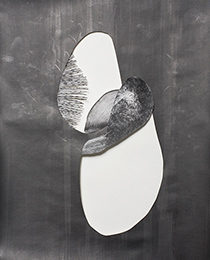
When one looks up the entry for the verb katechō in an ancient Greek dictionary—let us say the Liddell and Scott—, one finds: to hold fast, to hold back, to withhold, to check, to restrain, to bridle, to detain, to inhibit, to gain possession of, to be master of, to control, to possess, to occupy, to fill, to be spread over, to cover. The polysemy of the word is restrained, though, or . . .

